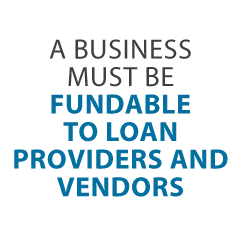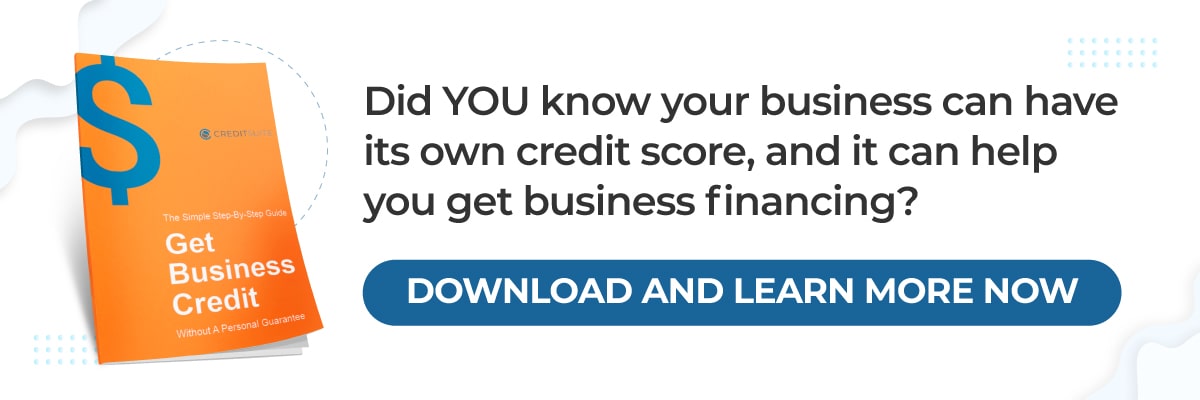Your Business Name Matters More Than You Might Think
Does your business name really matter that much? You’d better believe it.
So you are all set. And you’ve got a fantastic idea. You have the capital and the know how and the will.
All you need is a name.
You may be tempted to just go with something quick. But you should take some care with this decision, like you should with all of your business decisions. Your company name is going to matter!
So when you ask, “How do I name my small business?” the short answer is: carefully. Let’s look at what should you not do when naming a business.
1. A Business Name Made Up of Only Plain, Generic Words
True story: your blog writer lived on Long Island several years ago, and used to drive by a place called, not making this up: ‘Things and Stuff’.
No, your blog writer doesn’t know what they sold, either. This exceptionally generic name could have been used for a store selling antique watches, dog toys, baked goods, or chainsaws.
There is no way to recall if this company ever advertised in any manner, such as the radio or billboards. Keep in mind, this was before the internet was a big deal. Without specifics and without advertising, there was no reason to go inside and find out if you could get a chili dog, a bridal gown, a set of tires for a monster truck, or a stuffed penguin toy.
According to Entrepreneur, you can get away with this if your company is the first in your niche. Hence there is a General Motors because they have been around forever. They go back to pretty much the beginning of the automotive industry. This same concept also works for International Business Machines.
But it will not work for most business names. Be more imaginative than that. Please.
2. The Business Name Mashup
We have all seen these, where two dissonant words are slapped together, or a word is truncated in order to make it fit. If you name your company CheeseNinja, then do not be surprised if customers still have no idea what the heck it is that your company actually does. Do you sell cheese? Do you make it? And what’s with the ‘ninja’ part? Are you a stealthy cheesemaker, with an invisible dairy in an undisclosed location?
The truncated part can often be something like Ameri, or Tron, or Quali, or Port. Make sure the individual parts actually make sense for your business. After all, without Googling, do you know what FlipDog did (the company doesn’t exist anymore)?
Spoiler alert: they were a job postings board. Monster currently owns them.
3. What Should You Not Do When Naming a Business? Here’s One: The Case of an Ugly, Bad Deliberate Misspelling in a Business Name
Unless you owned Toys ‘R’ Us, don’t do this. It nearly always looks bad. But for Toys ‘R’ Us, the concept worked because it played off a child possibly not knowing how to spell. But you’re a grownup and, presumably, you do.
If you thought CheeseNinja was bad, it looks positively Shakespearean over the train wreck that is CheezNinja. Ouch.
The same is true with coined words. It can be difficult and expensive to get people to use and know how to spell words like Exxon, Enron, Verizon, and Kodak. These names aren’t horrible, and we all know them now. But they all cost their companies money in explaining the rebranding –and the explaining it again – to the general public.
If you do end up making up a name, try to keep it short and at least somewhat related to your industry. Xerox did this to spectacular results, because the prefix ‘xero’ means ‘dry’. And that is more or less what a Xerox machine could call itself back when the industry standard was mimeographing. It is a dry style of printing. This business name is also catchy and easy for people to pronounce and spell.
Bonus: 4. A Business Name Which Generates a Bad URL
Take a look at what your company’s name will look like as a URL. You will virtually always want to own the URL which has your company’s name, plus .com or .net, sometimes .org or even something like .tv.
You will want to own all of these versions of your URL because they will save your bacon if you are ever involved in an online crisis. The last thing you want is for a competitor or a disgruntled former customer (or employee!) to spoof your website and make your business look bad.
Yes, it happens. All. The. Time.
A Weird Special Case
So, what if your business is A Nu Start?
Yeah, you do not want that to be your URL. But you can fix this if you change the name of the company to A New Start, or something like Your Nu Start It is very close and it still gets across what you want. And you will not have to worry about an inadvertently wonky, funny, or offensive URL.
Corporation names need to help your business out, and not make you a laughingstock.
The Numbers Game
Another issue with bad URLs is numbers. If your company is called 5 Brothers Trucking, you will end up having to buy URLs with the Arabic numeral and also with the number 5 written out (five). This ends up being a bit more costly, and for no truly compelling reason. For a longer number, you probably do not need to do this. 511Brothers Trucking is not going to need to also buy the domain FiveHundredandElevenBrothersTrucking.com.
So you may want to rethink your company name if it includes a number. Of course a preexisting business will probably want to stay the same. And if you buy a company, you may need to keep the same name, at least to start. Otherwise, you will confuse customers.
But if you are just starting out, play around with the concept some more. Maybe 5 Brothers Trucking could be named Quintuplets Trucking or Quintuple Brothers Trucking. Do some brainstorming for a better business idea name.
Creativity is a Wonderful Thing
You can be creative when naming a business. It does not have to just be your name or you ‘and sons’ or the like. But take these issues into consideration because changing your company name will be costly and time-consuming! Consider what the implications are when you create a business name.
Problem #1 if You Ever Have to Change Your Business Name
One enormous issue with having to change your company name is it will make it more difficult for you to establish (or reestablish) company Fundability™.
A business has to be Fundable to lenders and merchants.
Consequently, a business will need a professional-looking web site and email address. And it needs to have site hosting from a company like GoDaddy.
Plus, company phone numbers ought to have a listing on ListYourself.net.
Also, the company phone number should be toll-free (800 exchange or the equivalent).
A company will also need a bank account devoted solely to it. Every single one of these touch points needs to have the correct company name on it.
So make sure you’re happy with your catchy business name.
Problem #2 if You Ever Have to Change Your Business Name
Every business also needs to have every one of the licenses essential for operating.
These licenses all have to be in the precise, correct name of the business. And they need to have the same small business address and telephone numbers.
So note, that this means not just state licenses, but potentially also city licenses.
Keep track of your licenses in case you ever need to update your business names. Because even good company names might turn out to need to be changed eventually.
Problem #3 if You Ever Have to Change Your Business Name
No matter what, you have got to work with the IRS. Visit the Internal Revenue Service web site and obtain an EIN for the business. They’re totally free. Pick a business entity such as corporation, LLC, etc.
A small business can begin as a sole proprietor. But they will most likely want to switch to a form of corporation or an LLC.
This is in order to diminish risk. And it will make the most of tax benefits.
A business entity will matter when it comes to tax obligations and liability in the event of a lawsuit. A sole proprietorship means the business owner is it when it comes to liability and taxes. No one else is responsible.
Problem #4 if You Ever Have to Change Your Business Name
You also needs a D-U-N-S number. And, surprise, surprise! It must be in the exact name of your company, with no alterations, additions, or omissions.
Start at the D&B web site and get a free D-U-N-S number. A D-U-N-S number is how D&B gets a company into their system, to produce a PAYDEX score. If there is no D-U-N-S number, then there is no record and no PAYDEX score.
Once in D&B’s system, search Equifax and Experian’s websites for the business. You can do this at www.creditsuite.com/reports. If there is a record with them, check it for correctness and completeness. If there are no records with them, when you start to build business credit, you will start to see entries, because Experian and Equifax will have something to report on.
And you’ll start to build a business credit score.
Problem #5 if You Ever Have to Change Your Business Name
You have worked so very, very hard to cultivate customer and brand loyalty. Changing the name of your business is going to put a dent in that, no matter what you do. Of course, you might recover. But it may take a while, and it’s expensive—just ask Exxon, formerly Esso. Or ask Nuance, formerly Dictaphone. Or Altria, formerly Philip Morris. You get the idea. But even good business names might not be so great eventually.
Your choice of company name can sometimes be the difference between getting business funding … or not. Make sure to give your business every advantage and name it the right way from the very start.

